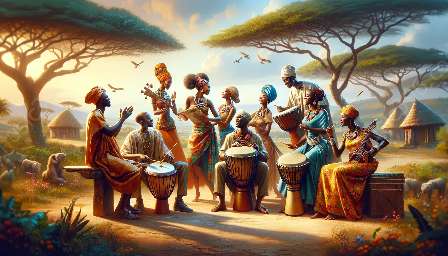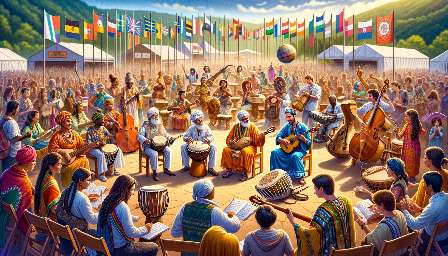Traditional African music is a complex and diverse art form that has been passed down through generations, reflecting the rich cultural heritage of the continent. In the context of African and world music, the preservation of traditional African music holds great significance and continues to inspire contemporary artists and musicians.
Significance of Traditional African Music
African music is deeply rooted in the cultural, social, and religious traditions of the continent. It serves as a form of communication, storytelling, and expression of identity. Traditional African music reflects the history, beliefs, and values of various ethnic groups and communities. Preserving this music is crucial for maintaining cultural identity and heritage.
Diversity of Instruments
Traditional African music encompasses a wide array of instruments, each with its own unique sound and cultural significance. These instruments include drums, rattles, string instruments, and various types of flutes and horns. The diversity of instruments reflects the varied landscapes, traditions, and beliefs across the continent.
Genres and Styles
African music is known for its diverse genres and styles, shaped by different regions and cultural influences. From the rhythmic beats of West African drumming to the melodic sounds of East African music, each region boasts its own distinct musical traditions. Preserving the diverse genres and styles of traditional African music allows for the continued celebration of Africa's cultural richness.
Preservation Efforts
Efforts to preserve traditional African music are ongoing, with organizations and individuals working to document, record, and promote the music of various African communities. Ethnomusicologists and researchers play a crucial role in documenting traditional music, ensuring that it is not lost to time. Furthermore, initiatives to support traditional musicians and provide education about African music contribute to its preservation.
Contemporary Influences
While honoring traditional African music, contemporary artists and musicians are also incorporating its elements into modern music. This fusion of traditional and contemporary styles has led to the global popularity of African music, impacting world music genres and inspiring cross-cultural collaborations.
Impact on World Music
The preservation of traditional African music has had a profound impact on world music, contributing to the global appreciation of diverse musical traditions. African artists have gained international recognition, and their music has influenced genres such as jazz, reggae, and hip-hop. The preservation and celebration of traditional African music continue to enrich the global music landscape.
Conclusion
Preserving traditional African music is essential for honoring the cultural heritage and diverse musical traditions of the continent. By understanding its significance, diverse instruments, genres, preservation efforts, and contemporary influences, we can appreciate the enduring legacy of traditional African music within the context of African and world music.










































